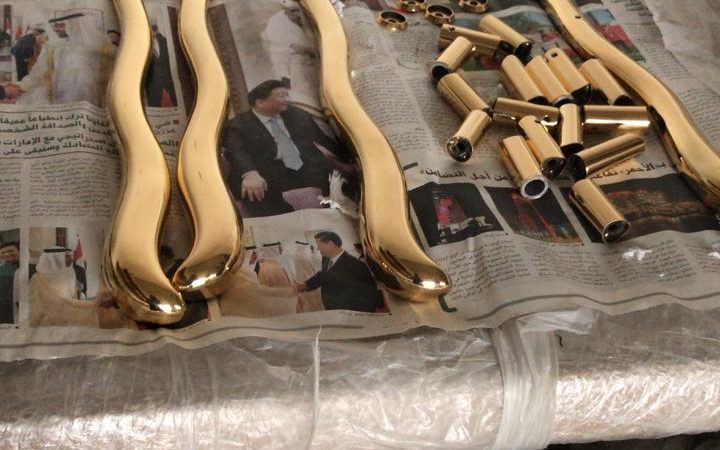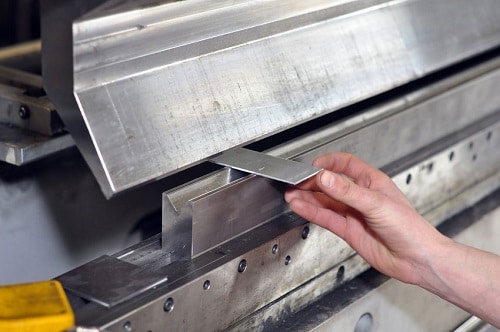What is gold plating? What are the types of gold plating? What is gold plating used for? In this post, you will find the answers to these and other questions.
Table of Contents
Gold plating in Dubai has never been more widely used than today, thanks to ever-advancing technological capabilities. Many UAE manufacturers find that the benefits of gold plating outweigh the costs, resulting in a great long-term ROI.
What is gold plating?
Gold plating is the process of chemically or electrochemically placing a thin layer of gold on another metal like copper or silver. It prevents corrosion and rust and extends the life of the metal beneath it.
Manufacturers also employ it for its high-reliability contacts and connections for signal transmission. It’s also used to make gold and silver-plated jewelry and adorn less expensive materials.
What are the types of gold plating?
The following is a quick summary of the three common types of gold plating:
Hard gold plating – a small percentage of an alloying compound is added to improve the hardness and wear properties of the gold deposit. Hard gold deposits have a refined grain structure that produces a brighter overall gold appearance.
Soft gold plating – soft gold has a coarser grain structure than hard gold, giving it higher tensile strength. Because there are no alloying components to oxidize, soft gold is ideal for wire coupling and high-temperature applications.
Duplex gold plating – it is a combination of soft and hard gold deposits to create a finish with both gold plating properties. Additionally, because of the mismatching grain orientations of the two gold layers, duplex gold deposits have decreased total deposit porosity. It can give better corrosion resistance than one-layer gold deposits while using less gold.
The gold plating process
During gold plating, the substrates are first chemically cleaned to remove all surface residues. To ensure the quality of the coating, it is important to clean the substrate thoroughly.
For some substrates, copper or nickel are first applied as a supplementary coating. If the substrate is chrome-plated, it must be removed before gold plating. These procedures are carried out as part of the pretreatment stage, which precedes the plating process.
Benefits of gold plating
Gold plating has a number of advantages, including:
1. The ability to conduct electricity
Gold is a conductive metal, and it keeps its electrical conductivity even under harsh environments for long periods. Gold plating in Dubai is widely employed on copper and steel connectors to create a continuous and reliable conductive pathway.
2. Ductility
Gold is a malleable metal, making it excellent for use in contacts and flexible springs of many kinds. Gold’s flexibility ensures that its benefits endure numerous contact cycles. The polish on gold-plated electrical contacts or springs depends on the underplate selection to guarantee the finish meets design standards.
3. It has thermoelectric properties.
Gold is the third most thermally conductive metal, following silver and copper. Since it does not create insulating compounds on the surface, it retains its high heat conductivity.
4. Excellent protection from corrosion
In extreme conditions, gold is very resistant to corrosion because of its noble, unreactive nature. It is resistant to powerful oxidizing and mineral acids, as well as corrosive salts. Gold does not create oxides or compounds, maintaining its technical qualities. This attribute makes gold an ideal coating for applications exposed to corrosive environments.
5. Aesthetic appeal
Gold plating improves the appearance of products by providing a finish that does not easily tarnish or deteriorate. Gold’s intrinsic worth is globally acknowledged and signifies a high-quality product.
6. Non-reactivity
Gold is a noble metal meaning that it does not react or form compounds with other elements it contacts. This property enables nuggets of pure gold to be found in nature even after millions of years of exposure. This unique gold characteristic makes gold plating a great corrosion barrier layer.
7. Biocompatibility
Gold-plated medical equipment is biocompatible and can be safely implanted within the body. Gold is naturally antimicrobial and autoclave resistant, making it perfect for orthopedic instruments and devices. Furthermore, because gold is radiopaque, gold plating provides an excellent coating for marker bands and other arthroscopy devices.
The numerous advantages of gold plating in the UAE must be combined with a finish that has been properly designed. Pretreatment and activation of the base metal are also important to maximize the potential performance of the gold deposit in the long term.
At Eminence Metal Fabricators Dubai, we provide all-inclusive kits that contain gold plating solutions and materials. For any gold plating requirements, reach out to the best metal fabricators in Dubai and get your quote.
Frequently Asked Questions
What is gold plating used for?
It can be used to decorate jewelry, medical devices, and beauty products, and in some circumstances, heavy coatings are employed to protect against wear and tear.
How long does gold plating last?
Gold-plated jewelry typically lasts two years before tarnishing and fading. Depending on how well you keep your jewelry collection, the time frame can be shorter or longer.
Does gold plating wear off easily?
Gold plating corrodes and flakes off with time, revealing the basic metal. It also loses its luster and fades with time. With good care, the plating can last up to two years. Furthermore, the gold-plated object may lose its coating with prolonged exposure to other corrosive metals like zinc and brass.




